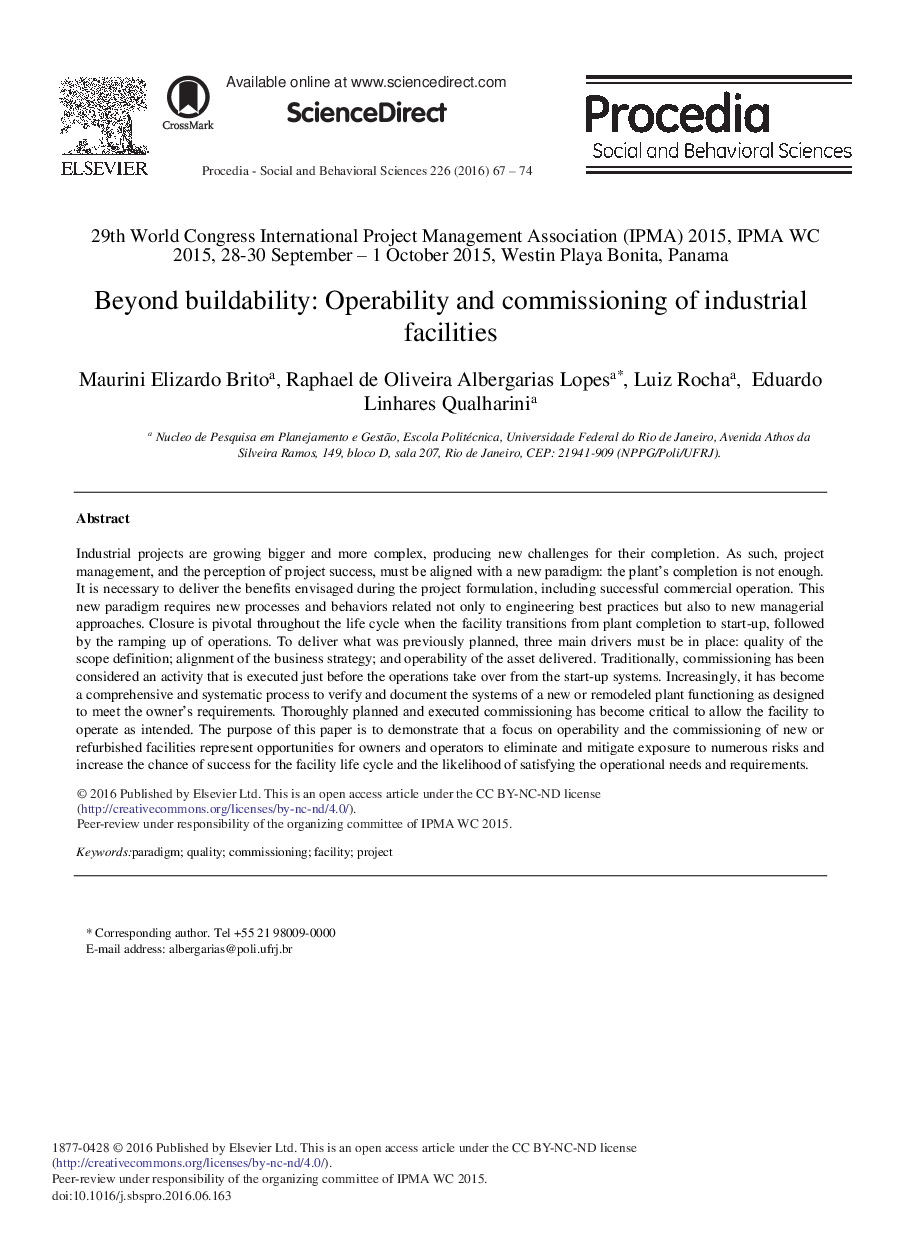| Article ID | Journal | Published Year | Pages | File Type |
|---|---|---|---|---|
| 1107471 | Procedia - Social and Behavioral Sciences | 2016 | 8 Pages |
Industrial projects are growing bigger and more complex, producing new challenges for their completion. As such, project management, and the perception of project success, must be aligned with a new paradigm: the plant's completion is not enough. It is necessary to deliver the benefits envisaged during the project formulation, including successful commercial operation. This new paradigm requires new processes and behaviors related not only to engineering best practices but also to new managerial approaches. Closure is pivotal throughout the life cycle when the facility transitions from plant completion to start-up, followed by the ramping up of operations. To deliver what was previously planned, three main drivers must be in place: quality of the scope definition; alignment of the business strategy; and operability of the asset delivered. Traditionally, commissioning has been considered an activity that is executed just before the operations take over from the start-up systems. Increasingly, it has become a comprehensive and systematic process to verify and document the systems of a new or remodeled plant functioning as designed to meet the owner's requirements. Thoroughly planned and executed commissioning has become critical to allow the facility to operate as intended. The purpose of this paper is to demonstrate that a focus on operability and the commissioning of new or refurbished facilities represent opportunities for owners and operators to eliminate and mitigate exposure to numerous risks and increase the chance of success for the facility life cycle and the likelihood of satisfying the operational needs and requirements.
